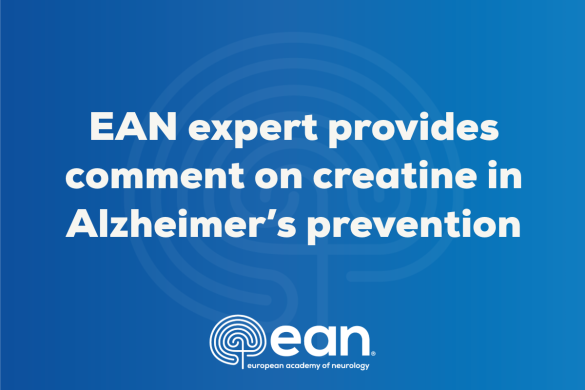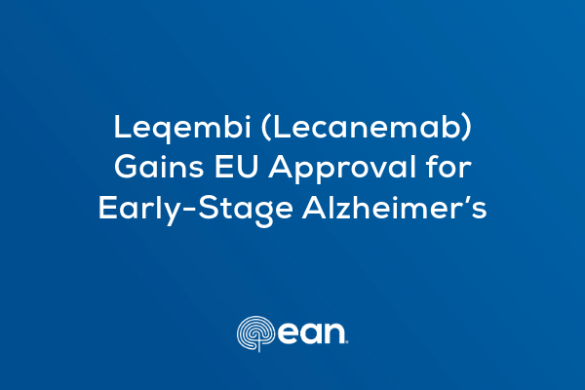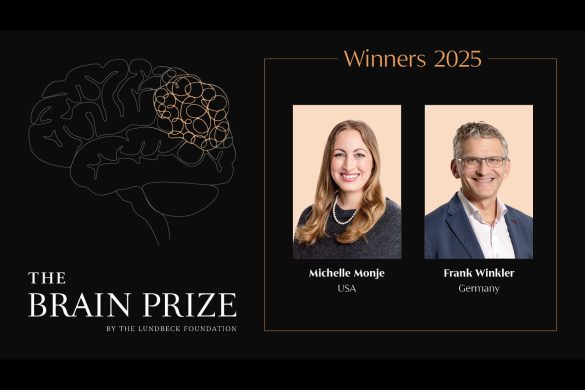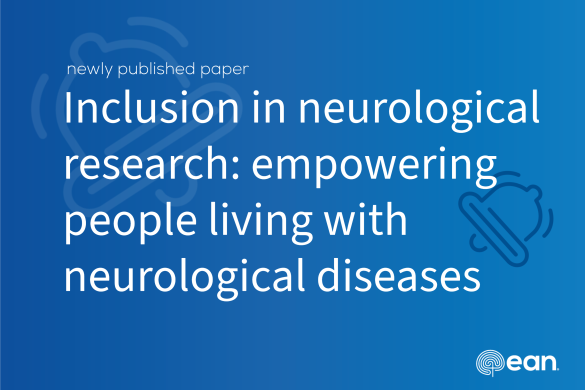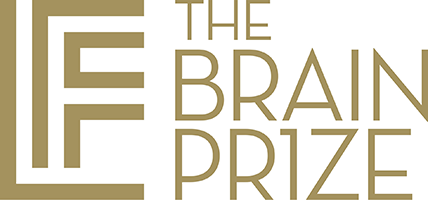
This year, The Brain Prize – the world’s most valuable prize for brain research – was awarded to Peter Dayan, Ray Dolan and Wolfram Schultz for their analysis of how the brain recognises and processes reward. The prize was presented to the prizewinners by His Royal Highness The Crown Prince of Denmark at a ceremony hosted by the Lundbeck Foundation on 4 May in Copenhagen.
The sense of reward is surprisingly complicated. It is influenced and determined by many things, such as taste and smell, as well as by fundamental motivations such as hunger or thirst. In turn, it influences choices, decisions and even attention. Many regions of the brain process information associated with reward, but one central linchpin for the regulation of learning and performance is dopamine.
The research of this year’s winners has far-reaching implications for understanding human behaviour, including decision-making, gambling, drug addiction, compulsive behaviour and schizophrenia.
Thirty years ago, German-born Wolfram Schultz, now professor of neuroscience and Wellcome Trust Principal Research Fellow at the University of Cambridge developed methods for recording activity from dopaminergic neurons. He found that before learning, dopaminergic neurons respond whenever a certain reward is given to the monkey. However, if the monkey is shown various visual patterns and has to respond to one of them in order to secure the reward, the pattern of response changes as the animal learns. The dopaminergic neurons now respond when the correct visual pattern appears, and the response to the reward itself disappears. If no reward is given, the activity of dopaminergic neurons decreases at the expected time after the visual signal; but if the reward is delivered at an unexpected time, the neurons respond to it.
“This is the biological process that makes us want to buy a bigger car or house, or be promoted at work,” said Schultz. Every time we get the reward, our dopaminergic neurons affect our behaviour. “They are like little devils in our brain that drive us towards more rewards.”
British computational neuroscientist, Peter Dayan, director of the Gatsby Computational Neuroscience Unit, University College London, realised that the pattern of activity of dopaminergic neurons described by Schultz corresponds to a signal known – from the earliest days of artificial intelligence – as a ‘reward prediction error’. This signal is the difference between the delivered reward and the predicted reward. Such a signal, continuously updated in the brain
based on previous reward, is perfectly positioned to control learning. If predictions are wrong, for instance being too pessimistic, reward prediction errors can adjust them upwards to be more optimistic. If the prediction error signals that something unexpectedly good follows a choice that we made, we become more likely to act or behave in the same way in the future.
“Dopamine of course does not work alone,” Dayan noted. “Indeed, there is currently great interest in understanding the many cooperating and competing brain systems that contribute to both good and bad choices, and indeed manipulating them when things go wrong.”
Professor Ray Dolan, who was born in the Irish Republic, is the director of the new Max Planck Centre for Computational Psychiatry and Ageing, and works at the Wellcome Centre for Neuroimaging at University College London. Through his pioneering application of mathematical models to brain imaging and behaviour, together with his discoveries on the action of dopamine and other neurotransmitters, he has shown that the basic idea of a prediction error accounts for how humans learn about reward and punishment and how we learn about the preferences of other people. He has used innovative ways to determine how dopamine affects brain function, including its impact on memory function and the disposition to take risks. This work helps understand a range of psychiatric problems, for example behavioural impulsivity and apathy.
“One puzzling clinical problem is why some patients treated with drugs that boost dopamine function, for example in Parkinson’s disease, fall prey to pathological gambling. Our work has shown that this effect is, at least in part, due to dopamine amplifying an innate tendency to repeat activities that are rewarding,” said Dolan.
The Brain Prize, awarded by the Lundbeck Foundation in Denmark, is worth one million Euros. Awarded annually since 2011, it recognises one or more scientists who have distinguished themselves by an outstanding contribution to neuroscience.





